42+ Sample Band Contracts
-
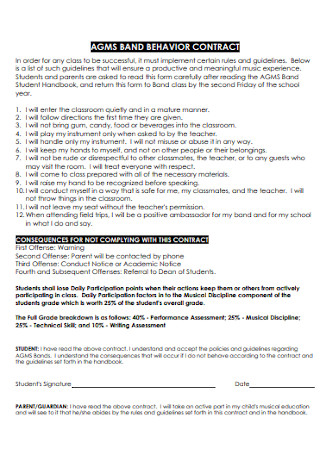
Band Behavior Contract
download now -
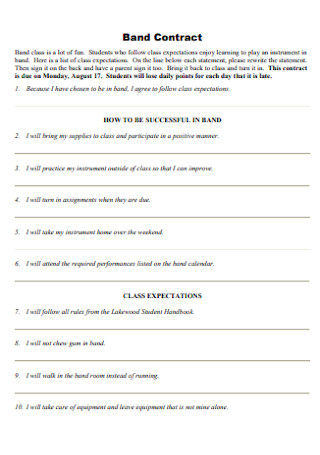
Band Contract Format
download now -
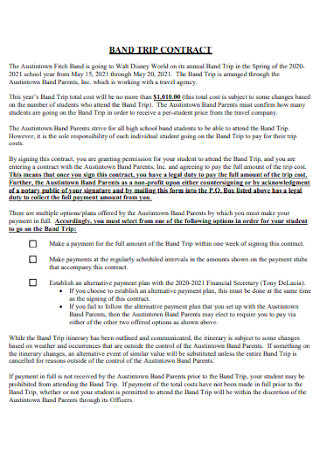
Band Trip Contract
download now -
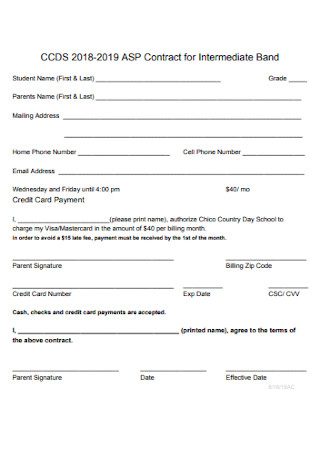
Contract for Intermediate Band
download now -
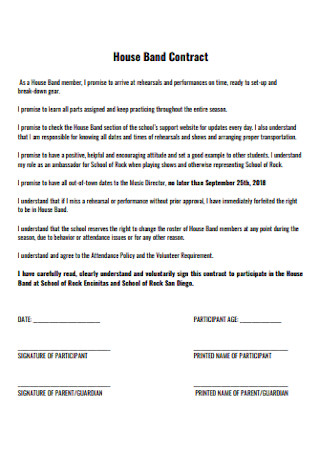
House Band Contract
download now -
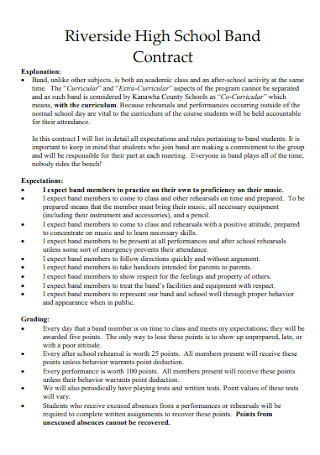
High School Band Contract
download now -
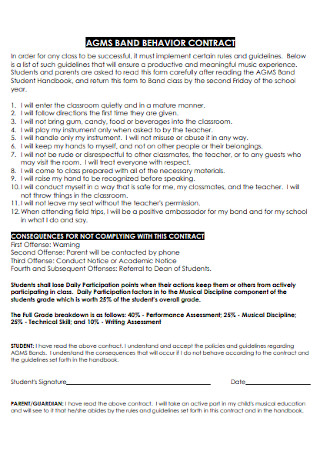
Sample Band Behavior Contract
download now -
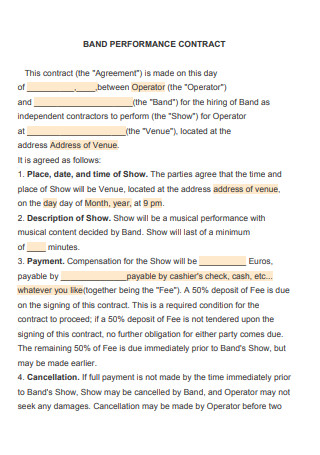
Band Performance Contract
download now -
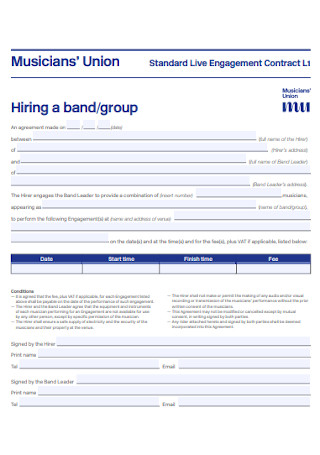
Band Group Contract
download now -

Sample Band Performance Contract
download now -
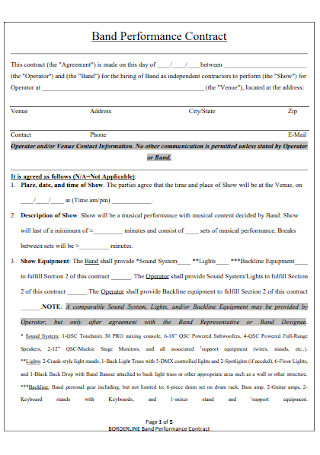
Basic Band Performance Contract
download now -
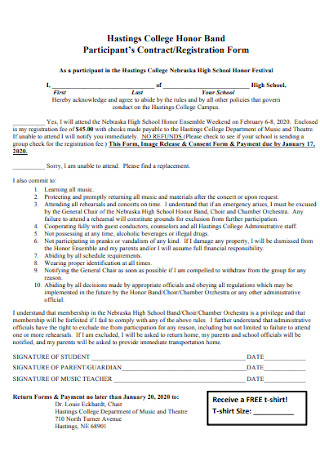
College Honor Band Contract
download now -
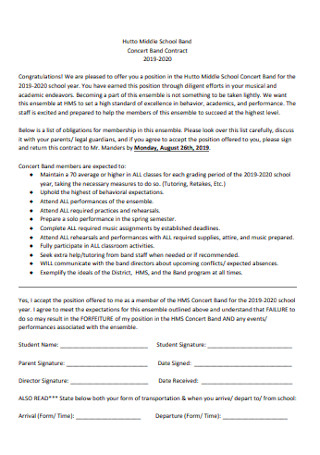
Miiddle School Band Contract
download now -
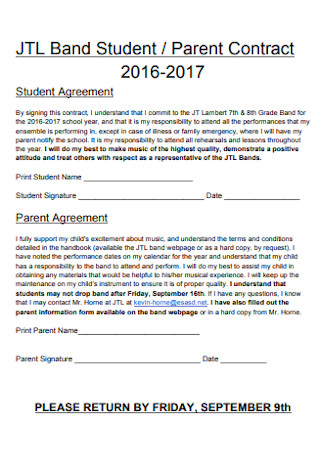
Band Student and Parent Contract
download now -
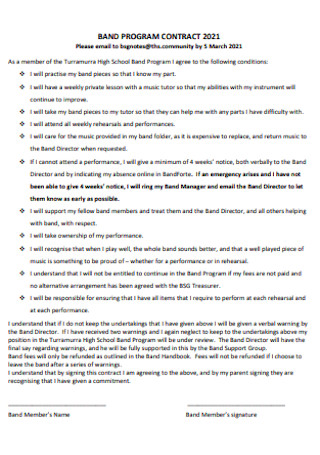
Band Program Contract
download now -
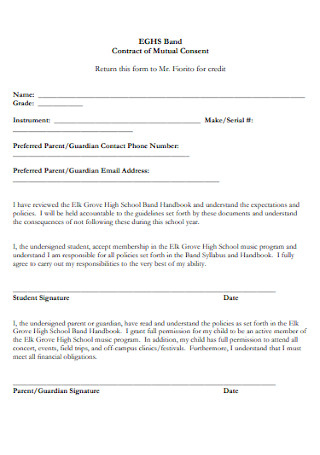
Band Contract of Mutual Consent
download now -
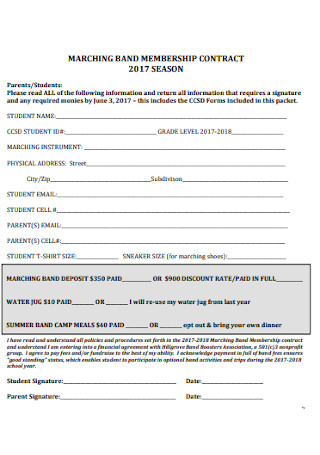
Marching Band Membership Contract
download now -
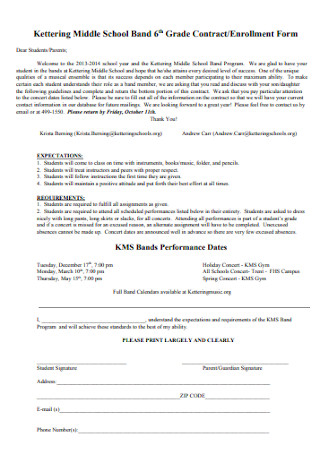
Band Contract Enrollment Form
download now -
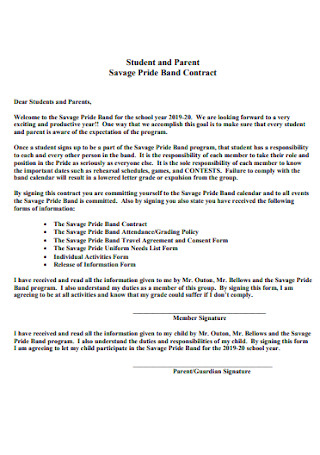
Savage Pride Band Contract
download now -
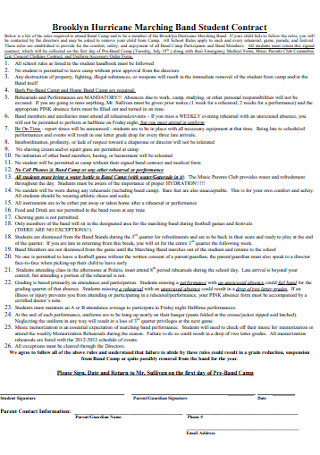
Marching Band Student Contract
download now -
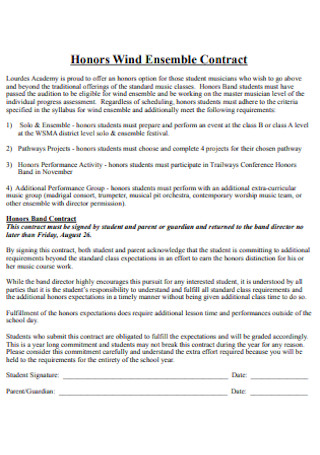
Honors Wind Ensemble Contract
download now -
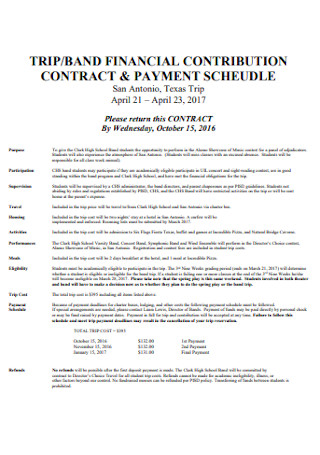
Band Fianacial Contribution Contract
download now -
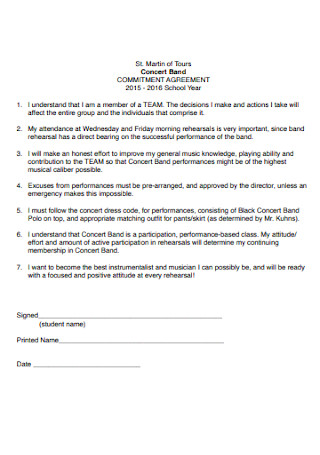
Band Commitment Contract
download now -
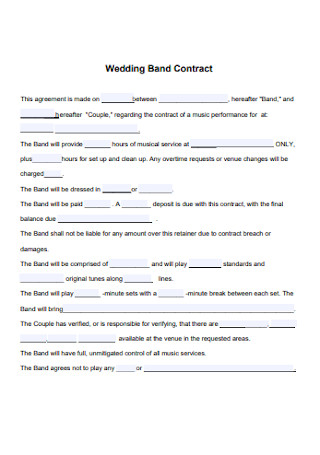
Wedding Band Contract
download now -
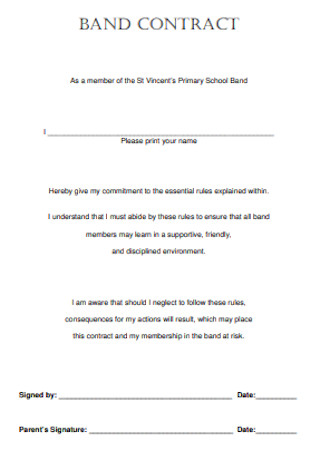
Simple Band Contract
download now -
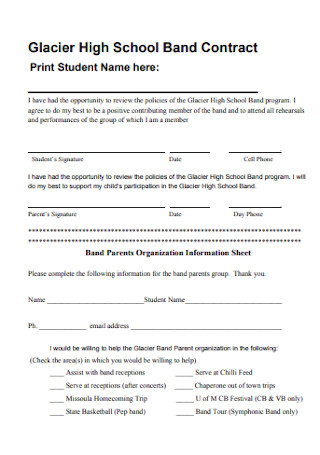
High School Band Contract
download now -

Marching Band Membership Contract Template
download now -
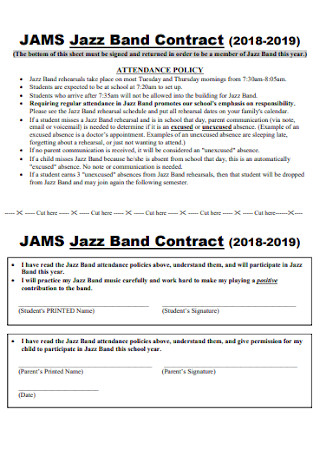
Jazz Band Contract
download now -
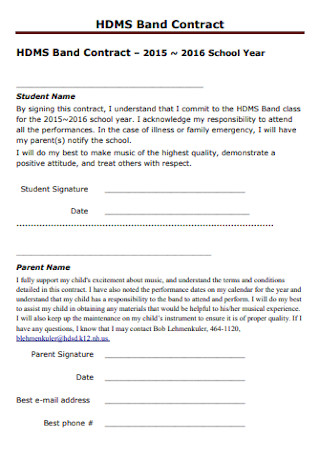
Basic Band Contract
download now -
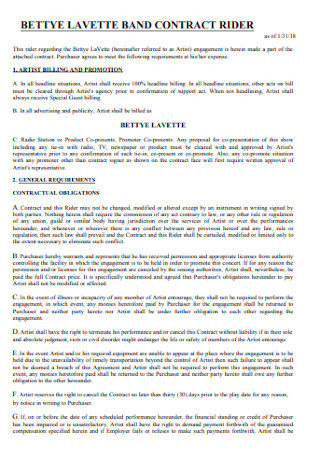
Band Contract Rider Template
download now -
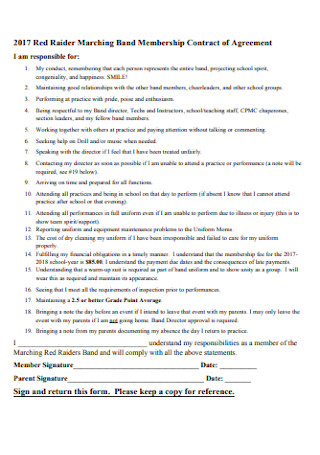
Band Membership Contract of Agreement
download now -
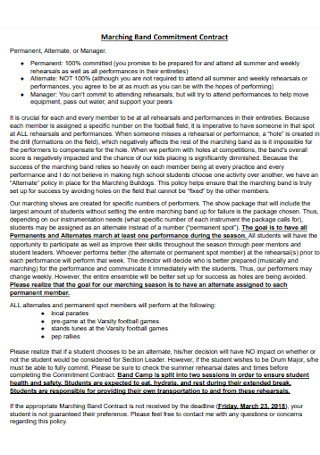
Marching Band Commitment Contract
download now -
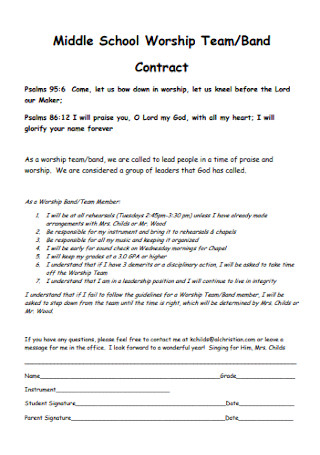
School Worship Team and Band Contract
download now -
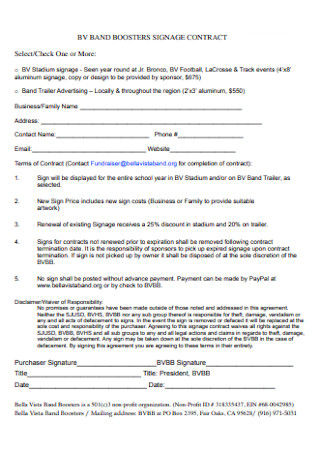
Band Booster Signage Contract
download now -
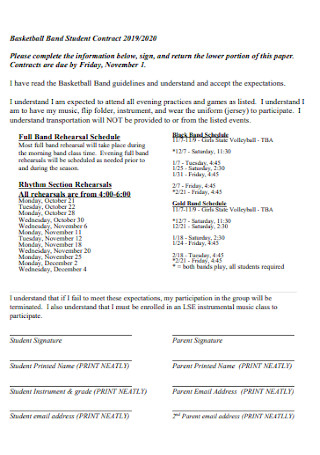
Basketball Band Student Contract
download now -
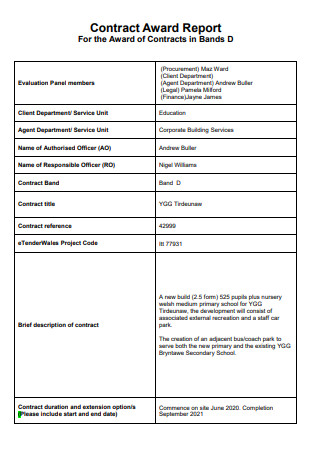
Band Contract Award Report
download now -
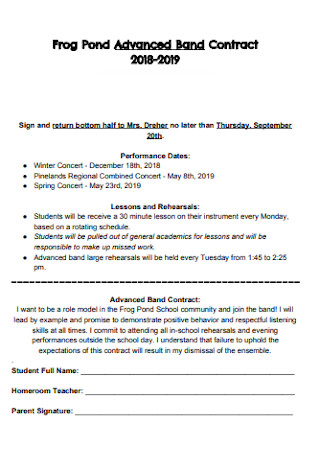
Pond Advanced Band Contract
download now -
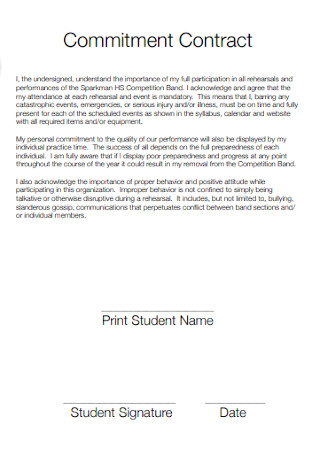
Commitment Band Contract
download now -
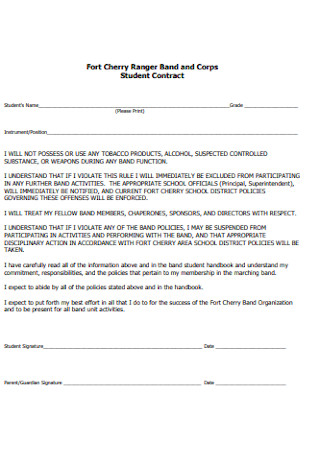
Band and Corps Student Contract
download now -
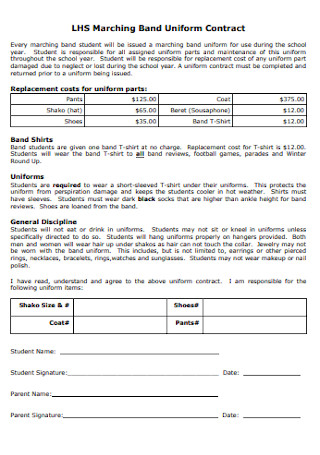
Marching Band Uniform Contract
download now -
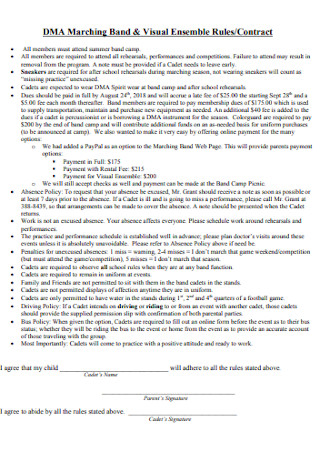
Band Visual Ensemble Rules and Contract
download now -
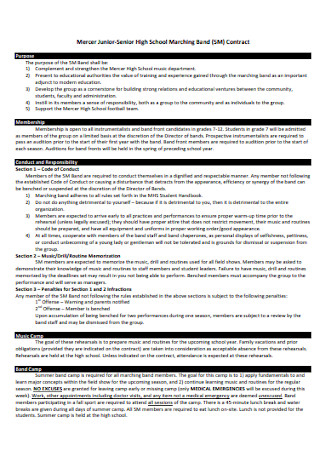
Senior High School Marching Band Contract
download now
What Is a Band Contract?
A band contract is a formal agreement between two or more parties involving the service and performance of artists and musicians. Sometimes, it involves an external party seeking to hire or contract the service of musicians for their talent.
One famous lawsuit involving a band and their record label company is when Virgin Records sued 30 Seconds to Mars for breach of contract. According to a Business Insider article, the $30 million lawsuit stemmed from a claim that the band members failed to deliver a third album to Virgin Records; when an agreement was made for a five-album deal. Eventually, both parties reached a settlement in 2009.
Types of Band Contracts
Band contracts can refer to a number of partnerships. It is important to be clear what kind of contract you are engaging in. Different scenarios may apply. You can either be a band member yourself or an outside party or representative (e.g., music venue, manager, record label, etc.) who wishes to engage the services and musical talent of the artists or band.
Components of a Band Contract
The content of your band contract would greatly depend on your need. Make sure you know what type of agreement you want to enter into. The following components are commonly found in band contracts:
How to Create a Band Contract
With the different types of band contracts, ensure you create the right one by choosing the appropriate template to serve as your guide. When you’ve established the kind of contract you need, follow these simple steps:
Step 1: Indicate the Parties
Every contract starts by indicating the parties involved. In the case of a band contract, the parties involved may be the band members, management, event organizer or venue, production company, record label, external contractor, the school organization, etc. Depending on your requirements, you can either be the drafting party or the receiving one that is tasked to review, modify, and/or accept the agreement.
Step 2: Supply the Basic Information
After establishing the identities of the parties, state the basic information. This includes describing the nature of the agreement or relationship to the band or group. Indicate the services involved and summary of the performance details. This may include, but is not limited to, show dates, call time, address of the venue, duration of performance, and other general booking information.
Step 3: Specify the Terms and Conditions
The terms and conditions make up the fine details of the agreement. Compensation, cancellation, security concerns, lodging and transportation arrangements, meal allowances, marketing and promotions should all be stipulated in the contract, if it’s applicable. For example, two parties agree to the terms of a 50% down payment before the event. The remaining balance is to be paid after fulfilling the obligation of a live musical performance. A band may enforce a non-refundable policy after an agreed period of time.
Other conditions could cover weather disturbances or unforeseen circumstances. For instance, a band is set to perform in an outdoor stadium venue. The band contract stipulates that in the event of undesirable weather conditions, both parties are allowed to postpone the performance and adjust the compensation terms. Another example would be band members setting conditions amongst themselves allowing any member to engage in musical collaborations outside of the band. For this case, the band contract must outline what the group members are allowed to take part in or what activities to avoid.
Step 4: Acceptance of Terms and Signatories
In concluding your contract, include a binding statement that both parties agree to all the terms and conditions. Declare that the document is a formal agreement and thus, legal and enforceable. Leave a designated line for the parties or their authorized representatives to sign.
FAQs
How do you get a band contract?
To get a band contract, you can either draft one yourself or use an existing template, and customize it to suit your needs. There are dozens of contract templates available online. It’s only a matter of choosing the right one and keying in the required information. Check out the samples above to create your own band contract.
Is being in a band worth it?
People often highlight the perks of being in a band. However, performing in a band as a worthwhile endeavor is subjective. It would obviously depend on the individual. If a person’s lifelong dream is to perform in front of a crowd and share or create meaningful music, then the person will naturally feel it is a worthwhile goal. Most people want fame and success but are not prepared for the problems and difficulties that come with it. The music industry is no exception. It may be appealing, but it is also a very competitive and ruthless industry. It is important to not only know your goal, but the more difficult challenge is to stay committed to it. If you or your band want a successful career and are dedicated to make it despite the challenges, then all the toil and hard work will definitely be worth it.
Why does a band need an internal group contract?
An internal group contract in a band is not always required; but it could help settle certain issues and ease tensions in the long run. It is not uncommon for musical groups to break up or go their separate ways. Bands break up for a number of reasons. Either one or several members disagree with the creative direction of management, or there are conflicting priorities amongst the members. A common denominator for most cases involve control and monetary issues. If a band has an internal group contract, it can allow a group compromise to ensue. It may not always serve as a guarantee; but at least certain issues can be settled in a civil and professional way.
Whether you are a group of musicians looking for your next big break, or a client looking to book a band for an important occasion, a band contract is a requirement in order to clearly define and manage expectations of each party. You may naively want to be successful in the music industry, but make sure you do your research and educate yourself on how the business works. Download a sample contract now and get started!
